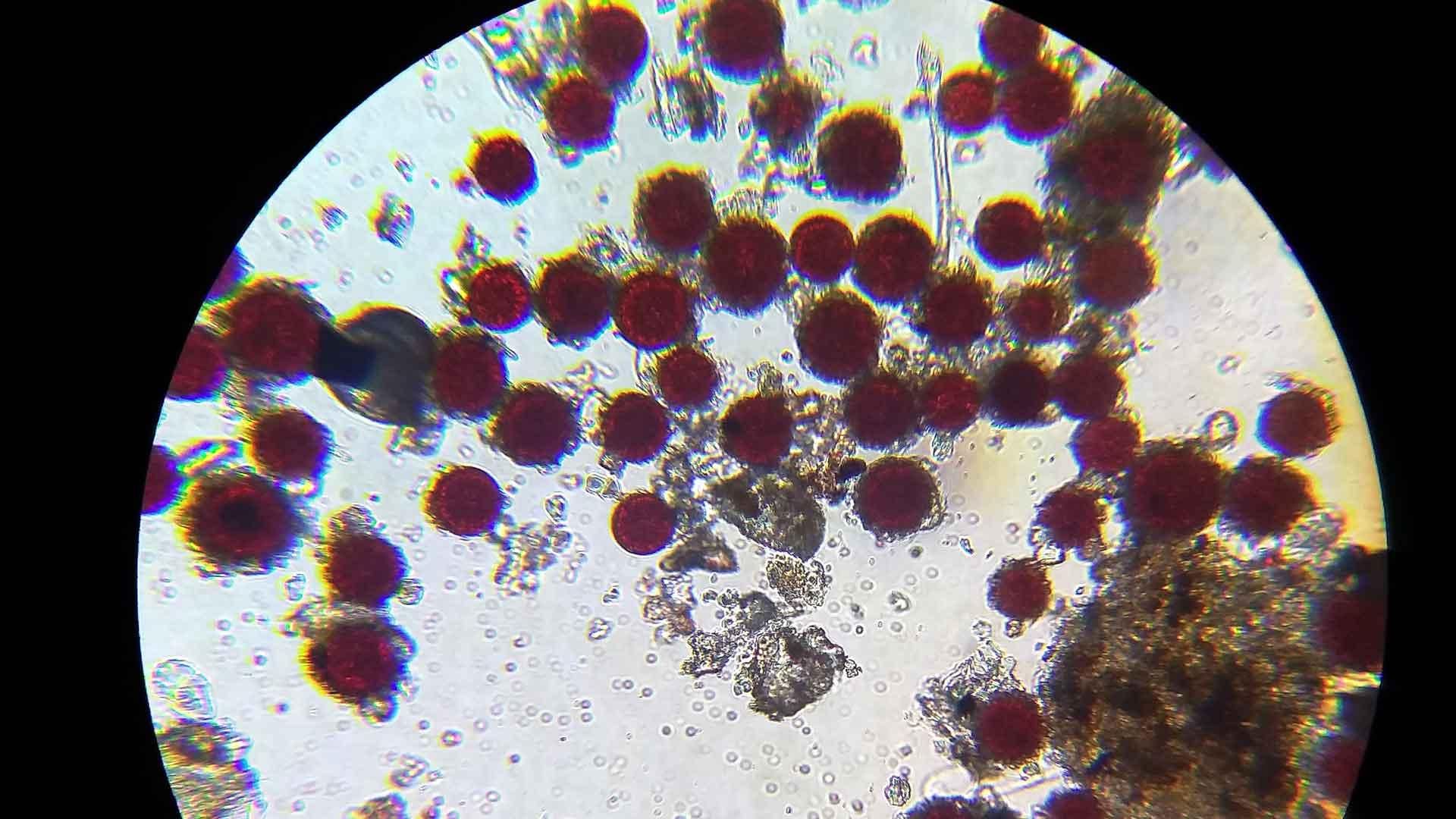HELENA– The National Science Foundation has awarded Carroll College a $527,969 grant to study snow algae communities and their response to environmental conditions. The grant was submitted and is under the direction of Assistant Professor of Biology Ashley Beck, Ph.D.
The overarching goal of the project, entitled "Dissecting Snow Algal Community Interactions to Understand Environmental Change Impacts" is to develop an experimentally grounded model system of snow algal communities predicting their responses to key environmental variables, such as light and nutrient availability. Algae blooming on snow, ice, and glaciers (commonly called pink snow) accelerate melting due to the absorbance of light by their dark pigments. With rising temperatures, additional contributions to glacier and snow melt are becoming of greater concern. Snow algae grow in communities with other microorganisms such as bacteria and fungi. Currently, little is known about the interactions between algal and non-algal species or how they respond to environmental conditions. This project investigates snow algal communities in Montana using a bottom-up approach, first characterizing the makeup of snow algal communities and isolating members for controlled laboratory growth experiments, leading to development of a model detailing how individual species contribute to community growth. By sampling snow algal communities in the same locations over five years, this project will gather important information about the seasonal and annual dynamics of snow algae.
“I still remember the first time I saw pink snow while out hiking in Montana and being incredibly intrigued by this phenomenon,” said Dr. Beck. “This fascination has now turned into an opportunity to share the joy of the research process with students and also give back to global society through understanding more about how snow algae communities may influence our environment.”
This project will include National Forest and Park partnerships, involve undergraduate researchers in the research process both inside and outside of the classroom, and engage rural Montana middle schools with the data collection process and underlying scientific concepts. The results of this project are expected to advance current understanding of snow algal community composition, function, and response to changing environments.
This project is intertwined with undergraduate education through bringing research into course-based labs and offering individualized summer research experiences. This work will advance current understanding of microbial interactions in snow algal communities and gain insight into ecosystem impacts; understanding productivity and stability over time in response to changing environmental factors is essential to predict how snow algae may affect the global climate crisis in years ahead.
Previous research with Carroll students has established the ability to perform DNA sequencing on-campus with environmental samples, using Oxford Nanopore technology to analyze microbial communities in water and soil. This grant combines state-of-the-art sequencing with field ecology and theoretical modeling to provide students a diverse array of experiences. Students will be involved in the project in a variety of formats, from intensive summer research sessions combining field sampling trips and molecular bench work, to course-based research labs studying the genomics, physiology, and ecology of these organisms, with the opportunity to develop their parts of the project into senior theses. Engagement with the broader community is also strongly emphasized as part of this research, and students will participate in outreach by developing educational materials and sharing their work with rural schools around Montana. Students will also enhance their professional and networking skills by presenting at national conferences and contributing to the preparation of peer-reviewed publications.
This project presents a unique opportunity for students to participate in real-world research and enhance their career preparation by learning to think from a systems perspective and synthesize computational, lab, and field work in a big-picture context, in this case relating snow algae communities to climate impact.
“I am extremely honored that NSF has seen fit to provide funding on this level to a small primarily undergraduate institution to support this research and training. This grant is an incredible opportunity for students to engage in place-based scholarly research with a big-picture global impact in mind,” said Dr. Beck.
About NSF
The U.S. National Science Foundation propels the nation forward by advancing fundamental research in all fields of science and engineering. NSF supports research and people by providing facilities, instruments and funding to support their ingenuity and sustain the U.S. as a global leader in research and innovation. With a fiscal year 2023 budget of $9.5 billion, NSF funds reach all 50 states through grants to nearly 2,000 colleges, universities and institutions. Each year, NSF receives more than 40,000 competitive proposals and makes about 11,000 new awards.

